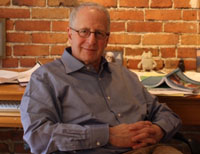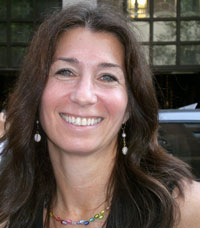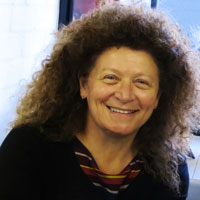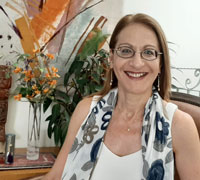We recently completed a wonderful colloquium centered on Steve Stern’s (USA) paper “Airless Worlds: The Traumatic Sequelae of Identification with Parental Negation” (Psychoanalytic Dialogues, 2019, 29: 435-450). This colloquium had been postponed in the Spring, when we opted to offer our Open Forum Series on Working During the Coronavirus Health Crisis, on the assumption that our community needed to come together then to process the pandemic. After this hiatus, we were able to return to our IARPP tradition with a thoroughly engaging colloquium which began on November 11 and wrapped up on November 22.
In this theoretically complex and integrative paper, Stern posits the notion of “airless worlds” to describe the intrapsychic situation that occurs for a child who is reared under circumstances of extreme parental negation, or non-recognition. He describes the sequelae of such early trauma and explores the kinds of therapeutic process that may be needed to meet such patients in vitalizing and reparative ways. He illustrates these ideas with a rich clinical vignette. Stern was joined in this colloquium by an international panel of discussants, who each contributed their own unique perspectives. The panelists included: Momi Beinart (Israel), Alessandro Cavelzani (Italy), Simona Caprilli (Italy), Heather Ferguson (USA), Peter Kaufmann (USA), John Kearney (Australia), Juan Tubert Oklander (Mexico) and Deborah Waxenberg (USA). Following the initial interpanel discussion, IARPP members from around the world joined in to deepen and expand the discussion.
The colloquium was a great success, thanks to Steve’s steady and generous responsiveness to a broad range of ideas, the high quality of intellectual and clinical discourse, a deep engagement with comparative thought and the consistent tone of respectful debate. There was a rich conversation about how therapeutic action, therapeutic goals, and the analyst’s use of self are construed in different theoretical paradigms. Self-psychological and relational approaches were contrasted; the role of development and nature of mind were considered from multiple vantage points. The discussion moved from work with adults to adolescent and child therapy. Generous illustrative clinical material was shared, contributing to the depth and accessibility of the themes explored. The metaphor of “airlessness” was taken up by the panelists and community and viewed through a kaleidoscopic lens. The inquiry moved from the consulting room to the broader culture, probing the ways in which we, as a field and as individuals, may be implicated in systems of patriarchy, colonialism and white supremacy that create distinctly toxic forms of “airlessness.” Each of the many threads developed during this colloquium warrant further exploration.
This colloquium completes the IARPP series for 2020. We look forward to moving ahead into 2021 which will hopefully bring a healthier and more stable world. Amy Schwartz Cooney will be stepping down from her role as Co-Chair and taking on the position of Joint Editor-In-Chief of Psychoanalytic Dialogues, among her other professional commitments. Cathy would like to take this opportunity to thank her for the wonderfully collaborative and friendly way we’ve been able to work together. Amy is very grateful to Cathy for teaching her the moderator “ropes” and being a great international penpal and friend.
We are pleased to welcome Shlomit Yadlin Gadot (Israel) to be the new Co-Chair of the Colloquium Committee along with Cathy Hicks (Australia), who will continue her tenure in this position. We look forward to sustaining the tradition of lively and stimulating IARPP Colloquia.
Amy Schwartz Cooney, Ph.D. (USA) and Cathy Hicks, Ph.D. (Australia)
Colloquium Co-Chairs


 Email Amy Schwartz Cooney
Email Amy Schwartz Cooney

